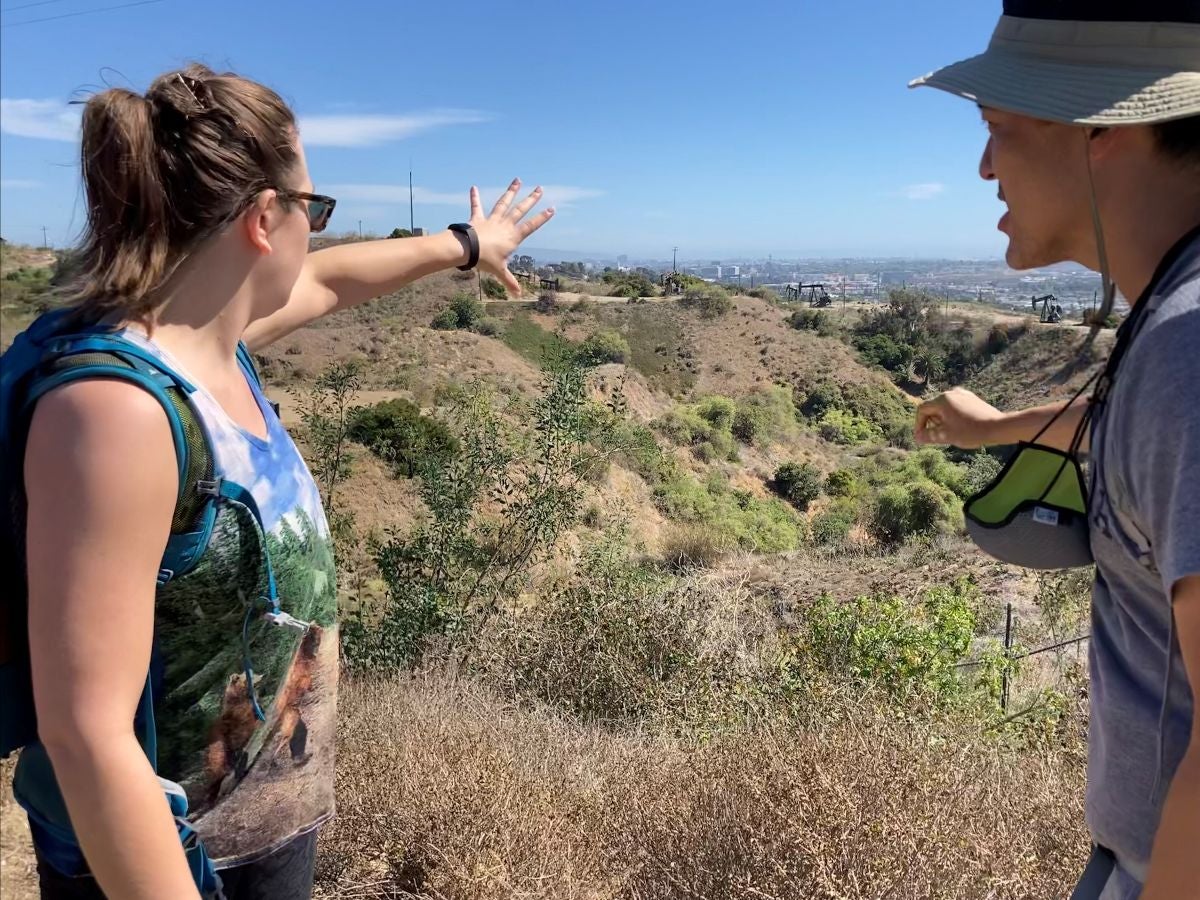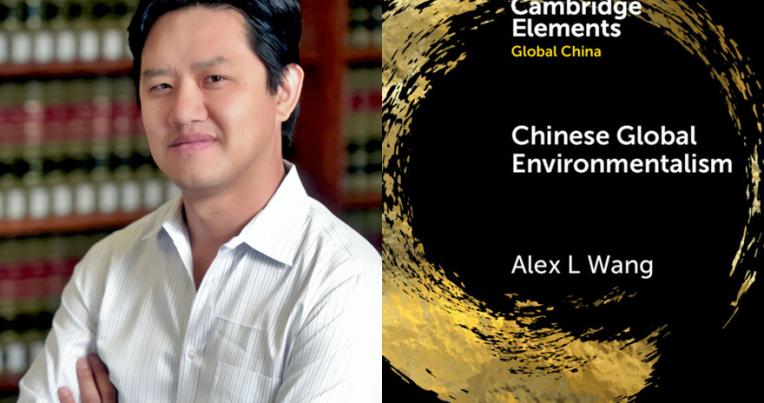Frank G. Wells Environmental Law Clinic
The Frank G. Wells Environmental Law Clinic trains law students in environmental lawyering through hands-on experience with real clients. Under the supervision of experienced faculty, students work on behalf of national, regional, and community groups on a wide range of environmental litigation and regulatory matters.
Students who take this six-unit course work on cases involving the most important environmental issues of the day. Founded in 1994, the Frank G. Wells Environmental Law Clinic is one of the first nationwide to teach conceptual frameworks that support particular lawyering skills, while at the same time exposing students to real-world environmental law practice through intensive work on environmental issues.

Students in this clinic have provided analysis underscoring the legal basis for Los Angeles County to phase out oil and gas operations; drafted successful petitions to enforce air monitoring near oil refineries; successfully challenged the grant of a permit for coal mining on Native American lands in Arizona on behalf of Hopi tribal members; and worked through the United Nations on behalf of small island states fighting for aggressive international climate change action. Read more about recent clinic work below.
The Environmental Law Clinic at UCLA
Faculty, students, and alumni talk about how the Frank G. Wells Environmental Law Clinic trains students in environmental lawyering through hands-on experience with real clients.
-
Clinic Faculty
Director Cara Horowitz leads the work of the Wells Clinic. She supervise and teach students in the clinic, along with other instructors. Previous clinic directors have included Ann Carlson and Timothy Malloy.
-
Selected Clinic Work
In spring 2022, students in the Frank G. Wells Clinic worked with clients to prepare litigation enforcing state requirements for air monitoring near oil refineries, which can be key to protecting vulnerable communities from pollution. In Southern California, a local air district rule created an exemption allowing smaller refineries to escape state monitoring requirements. Two Clinic students helped draft the petition filed by Clinic client Earthjustice on behalf of East Yard Communities for Environmental Justice, suing the South Coast Air Quality Management District to close that loophole. In 2023, the air district settled the case, agreeing to adopt new rules to remove the exemption for refineries that produce less than 40,000 barrels of crude oil per day.
In spring 2021, students worked with affected community members to advocate for cleaning up parkways in Los Angeles impacted by toxic lead pollution from the former Exide industrial recycling facility. Based in part on the students’ advocacy, state officials agreed to do more to assess community needs and priorities for the cleanup. The students worked on behalf of Communities for a Better Environment, an environmental justice nonprofit. The Clinical Legal Education Association awarded these students an Outstanding Clinic Team Award "for excellence in clinic fieldwork and for exceptionally thoughtful, self-reflective participation in an accompanying clinic seminar."
Also in 2021, students and faculty in the Clinic provided important analysis underscoring the legal basis for Los Angeles County to phase out oil and gas operations. This work included two letters submitted to the county on behalf of clients Los Angeles Neighborhood Land Trust and Natural Resources Defense Council. County Supervisors went on to pass motions—consistent with the Clinic’s recommendations—to protect communities from urban oil drilling and transition workers to new jobs in the clean energy economy, making Los Angeles the first major county in the country to move to phase out oil and gas drilling.
In 2018, two students from the Wells Clinic traveled to Washington, D.C. to present research on legislation that could help reduce plastic pollution in oceans. The clinic students joined client Surfrider Foundation in visits with U.S. Representatives and Congressional staffers on proposed federal actions to reduce the production and improper disposal of plastic items.
In 2013, two students from the Wells Clinic traveled to Washington, D.C. to present research on marine plastics pollution, at a workshop attended by more than 100 people, including Senate staff, federal and state agency officials, industry representatives, and members of the NGO community. Following the workshop, the clinic students joined client Surfrider Foundation in follow-up visits with Senate staff to discuss the details of the proposed federal actions to reduce the production and improper disposal of heavily-littered plastic items.
In 2012, the clinic assisted with drafting and refining SB 1201, a new law that extended the L.A. County Flood Control District’s management of the Los Angeles River to include – for the first time – a mandate to “provide for public use of navigable waterways under the district’s control that are suitable for recreational and educational purposes.” Working with Friends of the Los Angeles River and other advocacy organizations, the clinic was instrumental in the efforts that led to adoption of this new law (sponsored by Sen. Kevin De Leon). The law has facilitated new recreational opportunities on the River, including kayaking and open recreation.
In 2011, the clinic partnered with Islands First, an organization that helps small island nations to advance their environmental goals to try to avoid the negative consequences of climate change. Two students accompanied Islands First to the United Nations’ COP17 climate change conference in Durban, South Africa to assist with the organization’s advocacy efforts.
In 2009, the clinic filed an amicus brief in the 2010 California Supreme Court case Communities for a Better Environment v. South Coast Air Quality Management District. On behalf of a broad coalition of environmental advocacy groups, the Clinic argued that the review of environmental impacts of new factory processes and equipment must compare the pollution emitted by new processes and equipment against actual existing conditions, rather than against whatever emissions hypothetically would have been allowable under old permits. In March, 2010, the Court adopted the clinic's position in its opinion.
In 2009, the clinic drafted a motion for members of the Hopi tribe challenging approval of a permit to consolidate mines of the Black Mesa Complex coal mining project on Hopi and Navajo lands in Arizona. This permit would have set the stage for future mining in an area that had already experienced severe impacts on water supply, water quality and other resources as the result of decades of strip-mining of coal. The motion argued that an environmental impact statement prepared for the permit approval failed to consider alternatives to the proposed action and failed to inform the public adequately about the nature of the action being taken. The clinic’s motion, filed on behalf of Kendall Nutumya and other tribal members, was filed before an administrative law judge at the U.S. Department of Interior Office of Surface Mining, who adopted the clinic’s arguments and ruled that the environmental impact statement was inadequate. This was a significant victory that affected both the policy and politics of future mining in the area.
-
Student Experiences
"The Wells Clinic was one of the most valuable experiences in law school. I worked on real legal issues and got to think creatively about how to use the law to solve them. During the semester, my project teammate and I drafted a letter suggesting mechanisms to phase out oil and gas production on a portion of the Inglewood Oil Field. Shortly after receiving our letter, the Los Angeles County Board of Supervisors took action, largely aligning with our suggestions. Not only did the clinic allow me to contribute to real world environmental change, and a win for my client, but it also prepared me for my current practice by offering hands-on experience working in teams to produce legal work – a rare opportunity in law school, but a constant in practice. I was also able to work on multiple projects at one time (and provide feedback to other students’ projects), which gave me insight into the time management skills necessary to balance multiple matters and clients in my current work."
Reilly Nelson, UCLA Law Class of 2022
"The Environmental Law Clinic was a great way to gain practical experience working on real legal matters. During the clinic I was able to work on drafting a petition to enforce a state law requiring air monitoring near refineries, which ultimately led to a settlement between our client and the South Coast Air Quality Management District. Being able to discuss and brainstorm legal research and strategy throughout the semester with professors and classmates was extremely valuable. I also loved learning about and discussing the projects my classmates were working on — it was interesting to learn about various types of environmental legal work happening in California."
Monica Heger, UCLA Law Class of 2022
"The Environmental Law Clinic provided me with some of my most valuable, practical experiences in law school. Having the opportunity to ask questions and go through multiple drafts of my legal writing with the professors was invaluable training. Also through the clinic, I had the once-in-a-lifetime opportunity to serve as an NGO delegate at the UNFCCC in Durban, South Africa. It was eye-opening and inspiring to be involved with the daily process of the foremost international climate change negotiations. The clinic also helped prepare me for future environmental law classes, as it gave me context for many environmental law issues. I think that any extra practical experience is helpful for aspiring attorneys, and the Environmental Law Clinic provides a unique opportunity for structured, hands-on experience."
Lauren Bernadett, UCLA Law Class of 2013
"The Environmental Law Clinic provided outstanding practical experience working for live clients. Working on real legal matters provides incomparable experience and an opportunity to apply doctrinal knowledge and develop legal skills with the guidance of experienced professors. One of my projects in the clinic was a matter under the Clean Air Act in which we investigated an innovative tool to advance cleaning the notoriously polluted air of Southern California. I worked for that client the next summer, and was able to continue working on the project I started that summer. There’s no question that the clinics at UCLA Law provide tremendous opportunity and experience."
Dustin Maghamfar, UCLA Law Class of 2009
